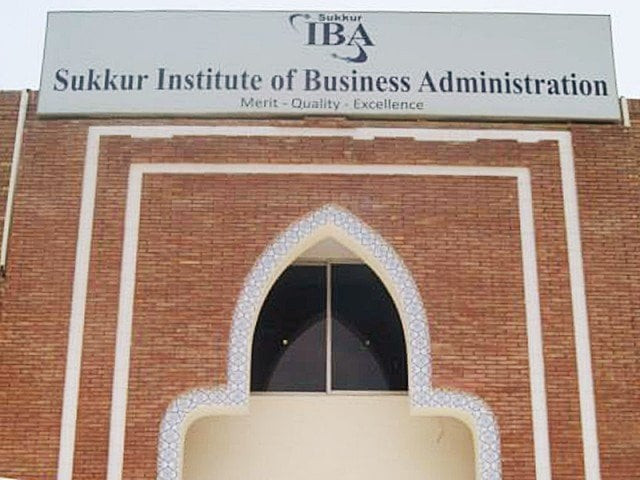Team up: Industrial products to improve through linkages with academia
Business community should pinpoint areas of partnership and coordination

Business community should pinpoint areas of partnership and coordination. PHOTO: PUBLICITY
In an instance, the concept of linking the academia with entrepreneurs has been successfully implemented in Pakistan’s first agro-based special economic zone in Khairpur. As a first step, a marketing committee has been constituted for the economic zone under the chairmanship of Institute of Business Administration (IBA) Sukkur Director Nisar Siddiqui to promote innovative ideas in sales and marketing of finished products in order to capture foreign markets.

Last week, IBA Sukkur also signed a memorandum of understanding (MoU) with National Bank of Pakistan (NBP) to strengthen industry-academia relationship. According to the MoU, NBP will provide 15 scholarships for four years, besides providing internship opportunities for students of IBA Sukkur.
Such focused linkages, which will help develop the national economy, will encourage other leading national and multinational business houses to join hands with business and engineering institutions to derive benefits from the knowledge and expertise of young enterprising minds.
This initiative will definitely help develop industrial processes as well as produce quality business graduates with business insight and acumen.
In this constructive relationship, research activities undertaken by the institutes will help entrepreneurs to improve the quality of industrial products, services and enhance the level of technological sophistication. At the same time, the students will have a feeling of practical experience, which will be very useful in their future endeavours.
According to the most successful entrepreneur of India, the CEO of Tata Group, “one of the most important roles of a university is that it works with the industry and provides solutions to industrial problems”. In the process, students get exposure to industrial environment, get to work on real world problems, gain experience and become a hot commodity for the industry to hire after they graduate.
So in the end it’s a win-win situation for everyone. The university gets much-needed funds, the faculty gets financial rewards and experience, the students get exposure to industry and they can be more productive when they finally graduate.
In this whole process, the linchpin is the faculty that convinces the industry to give funding for research and is ultimately responsible for delivering results. They also have to prove to the industry that they have the capability and experience to solve the industry’s problems.
This could be the next big idea alongside developing the financial muscle and working on innovation clusters through linkages with educational institutions.”
Sources of knowledge
There is no denying the fact that both students and teachers in local institutions have enough knowledge and ideas albeit theoretical, which is incredibly valuable. Entrepreneurs can definitely derive benefit from their accumulated business-specific knowledge and data.

The other source of knowledge and information – again academic – which the entrepreneurs can acquire is through write-ups of economists and experienced entrepreneurs. Participation in conferences, seminars and symposia, arranged by professional institutions, can also help a lot in sharing new developments in business management and framing effective marketing strategies.
Institutions like IBA Karachi and NED University of Engineering and Technology are places where business houses can find budding talents. The time is ripe for the dynamic industrialists to link the academia with their ongoing and upcoming ventures.
Case study
According to a case study of DI Khan, prepared by Gomal University professors Shumaila Hashim, Bakhtyar Khan Khattak and Afnan Khan, all renowned scholars of various disciplines have established that research in the socio-culture and economic variables is crucial for the development in every sector of national economy, especially industry, which is the main indicator of growth.
They stress that universities should be facilitated according to market demand. The universities, in turn, can offer enlightened guidance for further growth and development of the industry. The business community should understand that the academia-industry linkage is, in fact, very important for the progress and prosperity of the nation.
It is necessary to pinpoint the areas of partnership, co-ordination and reciprocated support between the two basic sectors for sustainable national progress.
The level and nature of academics and research has always played an important role in the process of development and is a common practice in developed countries.
The writer is a freelance contributor to economic issues
Published in The Express Tribune, January 12th, 2015.
Like Business on Facebook, follow @TribuneBiz on Twitter to stay informed and join in the conversation.


















COMMENTS
Comments are moderated and generally will be posted if they are on-topic and not abusive.
For more information, please see our Comments FAQ